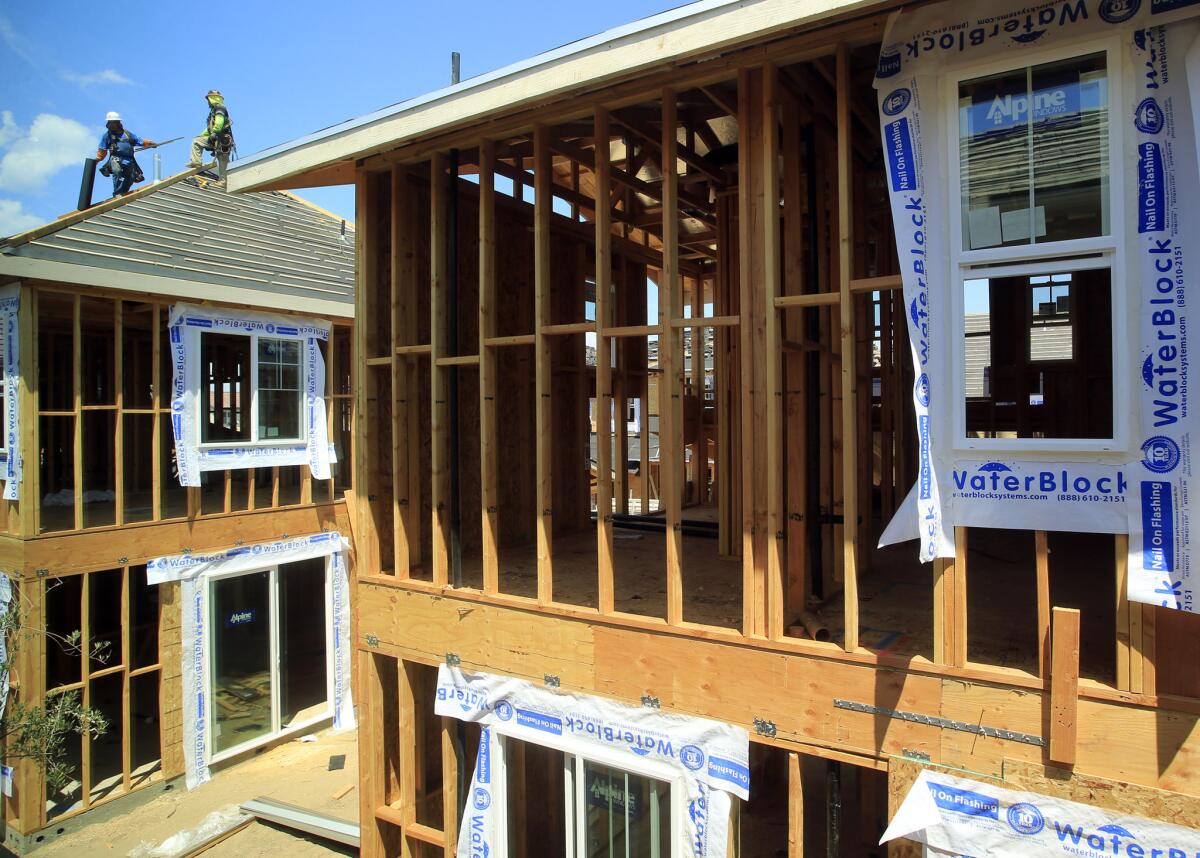Orange County housing shortage could drive out workers, hurt economy

If nothing changes, Orange County’s shortage of housing will drive out workers and drag down the region’s robust economy, a local business group warns.
In a report out Tuesday, the Orange County Business Council projects that the county’s housing shortfall will deepen sharply unless communities there build more apartments and houses at a greater density.
Without more places for workers to live, said Wallace Walrod, the council’s chief economic advisor, more twenty- and thirtysomethings will leave and businesses will struggle to recruit high-quality employees.
“We already lose more than we should,” he said. “This has long-term consequences for our economic competitiveness.”
The report -- a scorecard the council has released three times since 2008 -- measures the number of housing units and the number of jobs in Orange County.
At 1.5 jobs per housing unit, the county already has 50,000 to 62,000 too few homes to support its workforce, the report estimates. And if state projections for job growth and housing development hold, Orange County will fall another 100,000 units short of its housing needs over the next 25 years, Walrod projects.
“We know that the economy is going to continue to grow jobs,” he said. “We’re going to need to put people somewhere.”
Traditionally, that “somewhere” has been on newly developed land somewhere in Orange County, or in less-expensive locales in Riverside or San Bernardino Counties. But developable land is growing sparse along the coast, and, in a place where 40% of workers already spend an hour or more commuting each day, pushing east becomes less appealing all the time, Walrod said.
The answer, he said, lies in building up, not just spreading out.
“The era of big master-planned communities is not quite over, but it’s ending,” he said. “The kind of development that’s going on in Orange County is fundamentally changing. It’s going to be more infill, mixed-use, high-density development.”
Walrod pointed to Irvine -- the only city whose housing growth has kept pace with job growth in recent years -- and Anaheim as cities that are trying to plan for more housing at higher density.
In other parts of the county, planning commissions and neighborhood groups are pushing back. The study also pointed to high development fees -- from $40,000 to $80,000 per unit -- and regulatory hurdles as factors that slow homebuilding in Orange County and elsewhere in coastal Southern California.
A report earlier this month from the state Legislative Analyst’s Office detailed similar supply challenges drive up the cost of housing in many coastal markets up and down California.
Keep an eye on housing and real estate in Southern California. Follow me on Twitter at @bytimlogan
